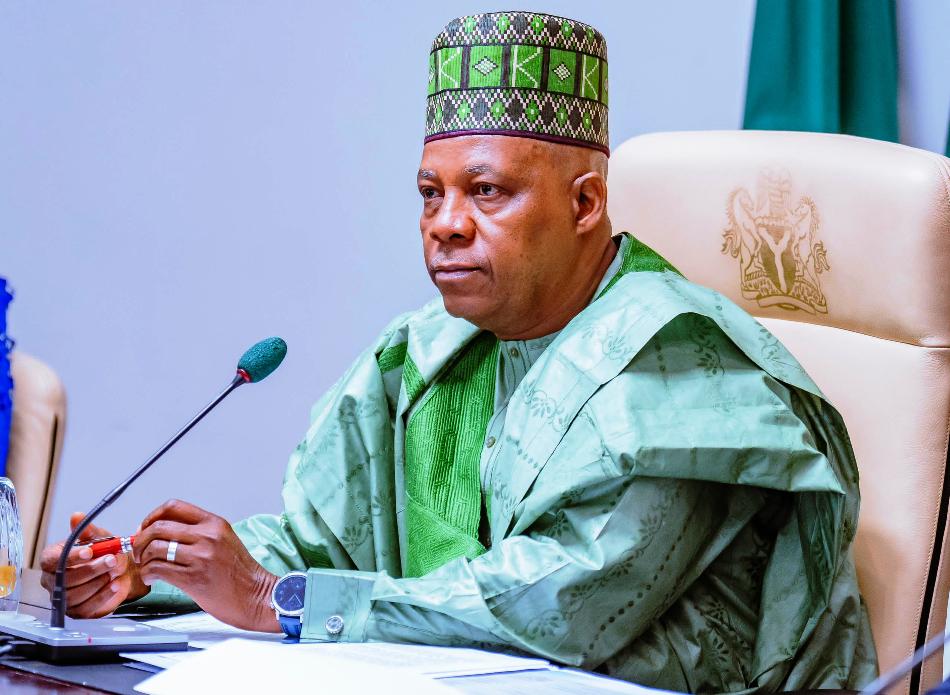Senate President, Godswill Akpabio and other stakeholders have called for a radical shift in the continent’s approach to natural resource management, urging nations to abandon the historical role of merely supplying raw materials to the global market while others profit from innovation, branding, and economic control.
The call was made in Abuja yesterday during the maiden raw materials summit with the theme: “Shaping the Future of Africa’s Resource Landscape”.
Represented by the Chairman Senate Committee on Science and Technology, Senator Aminu Abbas, the Senate president said by exporting unprocessed raw materials and importing finished products, many African countries forgo the job creation, skills development, and technological advancement that accompany local manufacturing and industrialisation.
He said: “We extract, yet others manufacture. We export in raw form yet import with added value.”
This extractive model, he said, rooted in colonial histories and reinforced by modern global asymmetries, continues to limit industrial growth and economic sovereignty in African nations.
Akpabio noted that the Senate has resolved to be proactive in addressing the structural imbalance.
“It is in this spirit that I reaffirm our full legislative backing for the 30per cent Minimum Value-Addition Bill, currently under consideration. This groundbreaking bill mandates that no raw material of Nigerian origin shall be exported without undergoing a minimum of 30per cent local value addition, whether through processing, refining, packaging, or industrial transformation,” he said.
This legislation, he added, is not intended to stifle trade; rather, it is designed to ignite domestic enterprise, create jobs, attract capital, and build resilient value chains that benefit our people.
He said: “This extractive model fuelled by colonial legacies and sustained by global asymmetries must now give way to a new paradigm rooted in local processing, regional integration, and sovereign economic vision.
“We must reject the historic pattern in which Africa merely supplies inputs while others reap the benefits of innovation, branding, and global market control. The future of Africa lies not beneath our soil but in what we do with what lies beneath. And what we do must be backed by law, driven by policy, and sustained by enterprise.
“Our task is to empower African entrepreneurs, SMEs, cooperatives, and young innovators who will turn mineral wealth into exportable machinery, agro-resources into packaged goods, and research into revenue.
“We invite African pension funds, sovereign wealth institutions, and multilateral development banks to direct capital into processing infrastructure, industrial parks, and green energy corridors linked to our raw materials.
“We are drafting laws to support climate-smart mining, regenerative manufacturing, and the circular economy. This is our commitment not as a gesture, but as a generational mandate.”
In his remarks, Minister of Innovation, Science and Technology, Chief Geoffrey Nnaji, noted that Africa for far too long, has exported raw potential and imported dependency. He called for industrialisation, value addition, and creation of prosperity on African soil.
Nnaji added that the ministry is deploying digital tools, traceability infrastructure, and research-to-industry pathways to strengthen intra-African trade under AfCFTA.
“This is how Africa moves from extraction to transformation from potential to prosperity. “Let this summit send a clear message: Africa will no longer export its future in raw form. Our minerals will power industries, our crops will feed global markets, and our youth will drive innovation,” he said.
Also speaking, the Director-General, Raw Materials Research and Development Council (RMRDC), Prof Nnanyelugo Ike-muonso, called on all African nations to adopt , adapt and advance raw materials, noting that the time has come for the continent to rewrite its industrial narrative, one powered by its own raw materials, local production hubs, and smart data systems.
Citing rising industrial clusters across Africa from Hawassa in Ethiopia to Tangier in Morocco, Tema in Ghana, Aba in Nigeria, and Kampala’s emerging powerhouses, he urged African nations to use the summit as a forge for casting new value chains, building catalytic partnerships, and laying the foundation for what could become Africa’s next trillion-dollar industry built by Africans, for Africa.
“Value addition is our liberation. It is the bridge between resource abundance and people-centred wealth. It is the lever through which we will build globally competitive African brands rooted in our soil and sweat.
“Also, it will deepen regional value chains and ignite intra-African trade in intermediate and finished goods. Most crucially, it will keep the wealth of Africa within Africa, for Africans, now and for generations unborn,” he said.
Founder and Creative Director of Winston Leather, Winston Udeagha, in his keynote titled: “Africa’s Raw Materials: Foundation for a Prosperous Industrial Future” urged African nations to transition from raw material exportation to value-added production and technological independence.
Udeagha decried Africa’s long-standing reliance on exporting crude resources for minimal returns, while importing finished products at high costs. “We want to make finished products here in Africa because I genuinely believe that the promise of Africa can only happen through value addition and export of finished products, not raw material,” he said.
He pointed out the irony of Africa’s wealth in natural resources juxtaposed with its status as one of the poorest continents.
“We have gold in Ghana, diamonds in South Africa, oil in Nigeria, 70per cent of the world’s cobalt in Congo, yet we remain economically behind because we export these in crude form,” Udeagha said.
Using vivid examples, he highlighted the continent’s dependence on foreign goods made from African resources.
“We export crude oil but import petrol. We export cocoa but import chocolate. We export leather and import shoes. We export timber but import toothpicks,” he said.
Tracing the issue back to colonial history, Udeagha argued that Africa’s economic stagnation stems from what he termed mental colonization.
“They conditioned us to believe that anything foreign is better. But if you think you must speak English to be educated, you’ve obviously never been to China. The Chinese teach in their native language and lead globally in manufacturing and technology,” he said.
The solution, Udeagha emphasised, lies in two key actions: changing mindsets and acquiring technical know-how.
He further noted that Winston Leather exports to 14 countries, with a focus on local talent trained both abroad and through digital tools like YouTube.
The Nation






